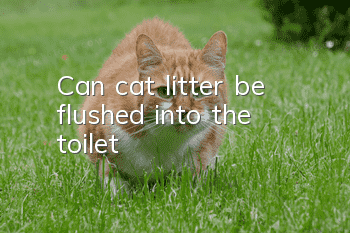Five common feline diseases

Five common feline diseases:
1. Skin problems. Itching and hair loss are common dermatological symptoms in cats; dry skin, red skin, oily hair, papules, blisters, scabs, or foul-smelling skin may also be symptoms.
2. Parasites. Parasites are usually in the form of fleas and ticks. Fleas can cause tapeworms and cause anemia (especially in kittens), and lice can also cause anemia and spread Lyme disease.
3. Hyperthyroidism. Feline hyperthyroidism is an endocrine disorder in cats that occurs when the thyroid gland produces too much thyroid hormone, usually in older cats. Symptoms include increased appetite, unexplained weight loss, increased thirst and urine output, vomiting, lethargy, weakness, and dull coat.
4. Obesity. Obese cats are at high risk for diabetes and liver disease due to hepatic steatosis. If your cat can only eat dry food, choose a diet high in protein and low in carbohydrates, and feed it in measured amounts each morning and evening rather than starting a 24-hour buffet.
5. Cat lower urinary tract disease. Feline lower urinary tract diseases include feline idiopathic cystitis (FIC), urinary stones, and urethral obstruction. Cats with FLUTD often show signs of difficulty and pain when urinating and urinating.
Methods to prevent feline diseases:
1. Bath your cat regularly. There are fleas on cats. You should bathe the kitten regularly to prevent fleas from crawling everywhere. When bathing the cat, you should pay more attention to scrubbing.
2. Diet. Because the digestive system of cats is different from that of humans, when we raise cats, we must pay attention to what they eat and drink. It is best to buy special cat food for cats. If you feed cats, it is best not to have condiments, which will prevent the cats from eating. Got stomach trouble.
3. Pay attention to weather changes. Summer is relatively hot, so try to arrange a cooler environment for cats, and prepare more cold drinks. Winter is relatively cold. It is recommended that you put some warm mats in the kitten's nest to prevent the cat from catching cold.
4. Vaccine immunity. It is recommended that cats receive a triple vaccine and a rabies vaccine.
5. Regular deworming. It is recommended that starting from the cat’s 10 weeks of age, we should promptly eliminate the interference of parasites on the cat’s growth and development and prevent the occurrence of parasitic enteritis.
- What are the Chinese medicines suitable for external use by cats? What Chinese medicines are suitable for external use by cats!
- Are cats suitable for keeping in the bedroom?
- Initial symptoms of kitten catitis
- Can cats eat ice cream?
- How to make a cat not resist taking medicine?
- How to prevent cats from pooping on the bed: these three points are very important
- The difference between Muppets blue double and sea double
- How can Siamese cats prevent cat moss? A must-read for cat owners!
- How to treat Bombay cat cough
- Why do cats suddenly alienate their owners?



